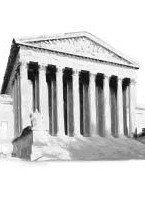Toplum Sözleşmesi Teorilerine Hegel’in Eleştirisi
Toplum Sözleşmesi, Hegel, Birey, Doğal Hukuk, Sivil Toplum, Devlet
Hegel's Critique of Social Contract Theories
Social Contract, Hegel, Individual, Natural Law, Civil Society, State,
___
- Aydın B. ( 2019). Toplumsal Sözleşme Teorilerinin Marx ve Foucault Temelli Eleştirisi, Liberal Düşünce Dergisi, 24(94), 65-87.
- Berry C. J. (1977). From Hume to Hegel: The Case of the Social Contract, Journal of the History of Ideas, 38 (4), 691-703.,
- Bozkurt, N. (2005). Hegel. Say Yayınları: İstanbul.
- Bumin, T. (2005). Hegel-Bilinç Problemi, Köle-Efendi Diyalektiği, Praksis Felsefesi (3. Baskı). İstanbul: Yapı Kredi Yayınları.
- Copilaş, E. (2017). Hegel and the Social Contract, Hermeneia, 19, 74-89.
- Franco, P. (1997). Hegel and Liberalism, The Review of Politics, 59 (4), 831-860.
- Garza Jr, A. (1990- 1991). Hegel's Critique of Liberalism and Natural Law: Reconstructing Ethical Life, Law and Philosophy, 9 (4), 371-398.
- Gökberk, M. (1946). Hegel’in Devlet Felsefesi, Felsefe Arkivi, 1(2), 99-129.
- Hartmann, K. (2013). Hegel'in Hukuk Felsefesinin Yeni Bir Sistematik Okumasına Doğru (çev. H. Bravo ). Alman İdealizmi II Hegel ( ed. Güçlü Ateşoğlu, ss. 359-391). Ankara: Doğu Batı Yayınları.
- Hegel, G.W. F. (1991). Hukuk Felsefesinin Prensipleri (çev. C. Karakaya). İstanbul: Sosyal Yayınlar.
- Hegel, G. W.F. (1999). On the Scientific Ways of Treating Natural Law, on its Place in Practical Philosophy, and its Relation to the Positive Sciences of Right. Political Writings ( ed. L. Dickey, H.B. Nisbet, ss. 102-180). Cambridge: Cambridge University Press.
- Hegel, G. W.F. (2018a). Felsefe Tarihi Cilt I, (çev. D. B. Kılınç). İstanbul: NotaBene Yayınları.
- Hegel, G. W.F. (2018b). Hegel’s Lectures on the History of Philosophy Vol. 3 (trans. E.S. Haldane, F.H. Simson). London: Routledge&Kegan Paul Ltd.
- Hegel, G. W. F. (2003). Tarihte Akıl (çev. Ö. Sözer). (2. Basım). İstanbul: Kabalcı Yayınevi.
- Hobbes, T. (2018). Leviathan (çev. S. Lim). (18. Baskı). İstanbul: Yapı Kredi Yayınları.
- Hyppolite, J. (1991). Sunuş. (çev. C. Karakaya) Hukuk Felsefesinin Prensipleri, (Georg W.F. Hegel, ss. 7-19 ). İstanbul: Sosyal Yayınlar.
- Keane, J. (1993). Modern Felsefe Geleneğinin Yeniden Değerlendirilmesi. (çev. L. Köker) Sivil Toplum ve Devlet (Haz. J. Keane, ss. 47-90). İstanbul: Ayrıntı Yayınları.
- Konur, D. ve Toprak, S. (2016). Hegel’in İnsan Anlayışı. ETÜ Sosyal Bilimler Enstitüsü Dergisi, I(2), 117-130).
- Öztürk, M.C. (2021). Mülkiyet Ve Özgürlüğe Dair İki Görüş: Rousseau Ve Hegel. Felsefe ve Sosyal Bilimler Dergisi, 31 (Bahar), 193-210.
- Rousseau, J.J. (2013). İnsanlar Arasındaki Eşitsizliğin Kaynağı (Çev. R. N. İleri). (13. Basım). İstanbul: Say Yayınları.
- Savran, G. A. ( 2013). Sivil Toplum ve Ötesi Rousseau, Hegel, Marx, (3. Basım). İstanbul: Belge Yayınları.
- Smith, S.B. (1986). Hegel's Critique of Liberalism. The American Political Science Review, 80 (1), 121-139
- Tannenbaum, D. G. (2017). Siyasi Düşünce Tarihi, (Çev. Ö. Orhan). Ankara: BB101 Yayınları.
- West, D. (1998). Kıta Avrupası Felsefesine Giriş, Rousseau, Kant, Hegel’den Foucault ve Derrida’ya. (çev. A. Cevizci). İstanbul: Paradigma Yayınları.
- Yetiş, M. (2003). Marx ve Sivil Toplum, Praksis Dergisi, 31, 35-72.
- Zabcı, F. (2013). Spinoza ve Locke: Siyasal Özgürleşmeden Bireysel Özgürlüğe. (4. Baskı). Sokrates’ten Jakobenlere Batı’da Siyasal Düşünceler (Ed. M.A. Ağaoğulları ). İstanbul: İletişim Yayınları.
- Yayın Aralığı: Yılda 2 Sayı
- Başlangıç: 2002
- Yayıncı: Bursa Uludağ Üniversitesi
Filozof, Sezar ve İsa: Nietzsche’de Egemen Olarak Geleceğin Filozofu
GODOT’YU BEKLERKEN VE BECKETTVARİ ABSÜRT ANLATIM
Ekosofinin Fenomenolojik Gelenekle İlişkisi Üzerine
Eşitlik Aksiyomu: Jacques Rancière’in Demokrasi Tahayyülü
Bilinç Problemine Sentezci Bir Yaklaşım: Nörofenomenoloji
Yeni Türk Sinemasında Değer Arayışları: Değer Yaratmak ya da Bunun İçin Uygun Koşulları Oluşturmak
Felsefe Tarihi Araştırmalarında Kullanılan Dijital Araçlar ve Metotlar
‘Dasein'ın ‘Das man’ Olmaklığının Gündelik Halleri Üzerine Bir Yaşam Yorumu
